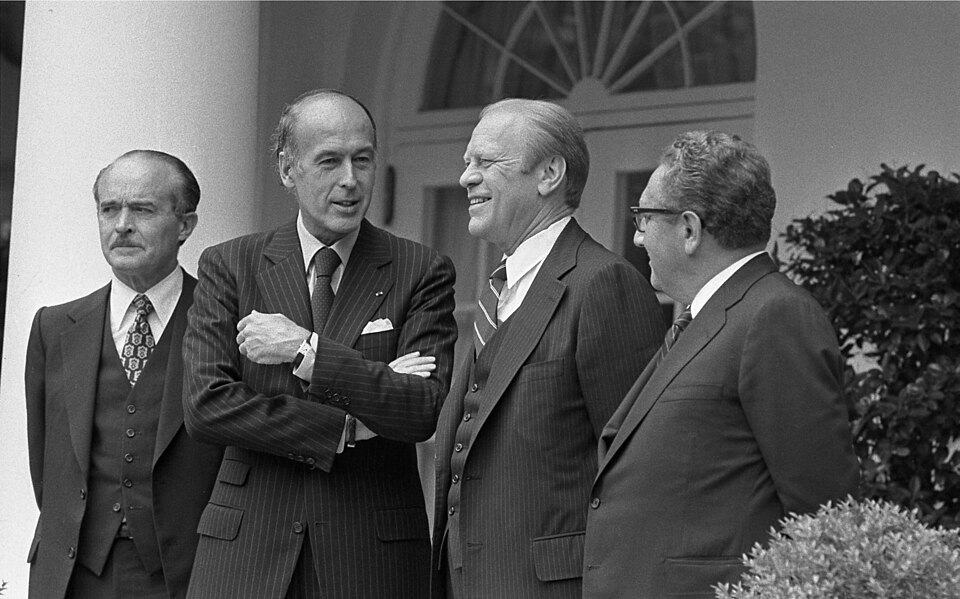Abstracts
Articles in the French and English editions of RDN this month
The balance of power in Asia - Christian Quesnot
The strategic and security postures of the major players who control the balance of power in Asia: this overview shows that despite disputes and differing national ambitions, pragmatism is the order of the day for guaranteeing the future development of a region now home to over half the world’s population.
Bringing together pure and social sciences in support of strategic analysis - Alain Bauer
For better prediction and prevention of crises, and to work around them successfully, Alain Bauer, the president of the CSFRS (the Higher Council for Training and Strategic Research) pleads the case for combining methods used in the pure sciences with those of social sciences.
Chaos and early detection: a critique of existing and proposed plans - Xavier Raufer
A critical reading of the documents that describe the nature of crises highlights the deficiencies of a blindly functional approach to unfolding conflict. Analysis of work done in France and the United States shows that we are still far from knowing how to face up to the unexpected.
Yesterday’s psychoses: tomorrow’s strategy - Patrick Laclémence
Through his review of malevolence and insecurity in recent history, the author shows the importance of an overall security culture that brings together the many players who are committed to ensuring day-to-day security for the French population.
Financial aspects of France’s vulnerabilities - Mario Faure
The ability of public finances and of the French market to resist unknowns in the current financial crisis can be assessed through an analysis of their characteristics. The solidity and lucidity of French financial institutions, and their capacity for rapid change, are the cornerstones of the financial resilience of the country.
What is strategic? - Philippe Baumart
This incisive article looks at the formidable question of the relationship between detection and diagnosis in an attempt to define what is strategic, as understood today. He assembles a variety of approaches in arguing for broad cross-disciplinary dialogue in preparing for strategic surprise.
‘Centre’ and ‘periphery’ in the Chinese context - Emmanuel Lincot
The contradictions of China frequently conflict with attempts to integrate the Western model. The country is rethinking its entire periphery from the west, in Central Asia, through its contact with India to managing contacts with its neighbours Japan, Korea and the United States. With regard to Europe, it is looking in particular at the Russian dimension.
The Sino-Russian strategic partnership: oil and gas - Jean-Marie Holtzinger
This article examines the nature and extent of the energy partnership between Russia and China, and shows that neither party wants to let itself be dependent on the other despite the de facto link arising from the strategic proximity of the two powers.
The Astana summit: the OSCE looks towards Eurasia - Guy Vinet
The OSCE’s Astana summit, organised by Kazakhstan, will develop the notion of a new role for that organisation, now seeking to revive itself through rekindling fundamental debate on the link between confidence, security and transparency, with the desire to play a full part in the Eurasian security structure.
Maritime security cooperation in the Pacific - Vladimir Jevtic
Despite the vastness and variety of the Pacific region, it suffers only from somewhat diffuse tensions in certain limited Asiatic zones. It has no single dedicated security organisation, relying instead on an extensive network of multilateral security structures, many of which involve France.
Burmese nuclear ambitions and their international implications: a look to the future - Irving Lewis
The prospect of a nuclear-capable Burma merits debate within the scientific and international strategic communities. Irving Lewis looks at the effect it would have on South-East Asia, and Asia in general, the major security problems that would arise and the considerable impact it would have upon international security.
South Africa: what next? - François Lafargue
This analysis of the future development of South Africa looks beyond the personal quarrels and ideological tensions that continue to divide the country. Against a background of the autocratic ambitions of some, and latent civil war, he outlines a possible scenario for reconciliation that has the potential to mobilise all the strengths of the country.
* The full text of articles marked with an asterisk is published in the English edition of this month’s RDN; all articles except the last appear, in French, in the French edition.




_astronaut_Sophie_Adenot_(jsc2025e058846_alt).jpg)



